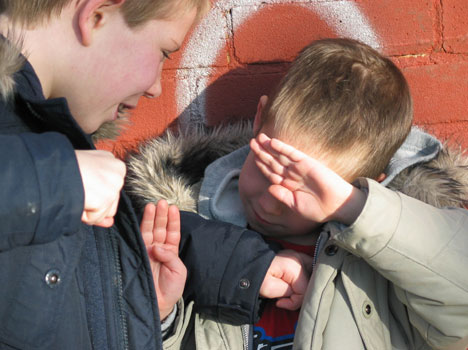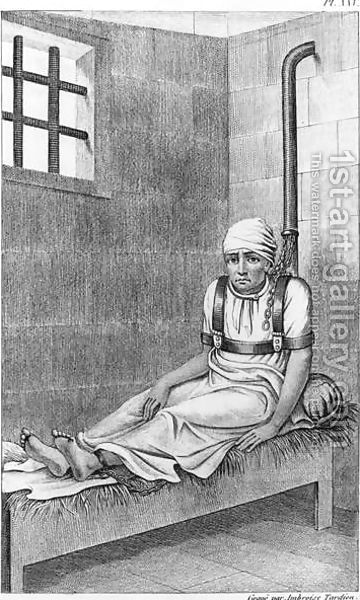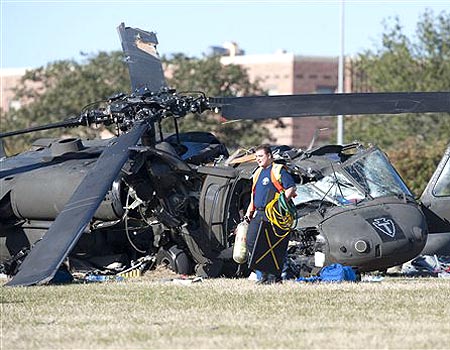 In yet another story that combines the Gay Uncle’s dual interests in children and automobiles (remember, he’s also the author of Stick Shift, Vanity Fair’s weekly online car column), Gunc has recently discovered that the best-selling car this past year was not one produced by the Big 3 (a.k.a. the Big 1 + Big Bankrupt 2). Neither was it a Japanese model, or one from some upstart automotive country like Korea. Nope. Rather the top selling car was this awesome, sporty, red two-door, the Little Tykes Cozy Coupe. It’s been a rough year for the auto industry, but this must be some devastating news, even for them. No less so because as they try to innovate and match the changing tastes of the fickle American consumer, the Cozy Coupe has been virtually unchanged since it was brought out over thirty years ago. No airbags. No side-impact beams. No emission controls. No brakes. (Unless you count junior’s footsies, which power and stop the car, Flintstone-style.) Moreover, guess what? The dumpy little piece of plastic is manufactured right here in the United States, employing our local laborers and poisoning our local streams with its effluents, instead of killing some poor Chinese kids. Go America! We’re still tops in something. Gunc is uncertain if the Obama administrations new “Cash for Clunkers” law will pertain to this vehicle, so he’s not certain you can get some incentive to purchase a new one. And it might not work out so well for your commuter duties, unless you’ve recently been laid off and don’t have anywhere to be. But he feels that you could do worse than stimulate the economy by running out and buying one for the kids. So long as your house is not at the top of a steep hill.
In yet another story that combines the Gay Uncle’s dual interests in children and automobiles (remember, he’s also the author of Stick Shift, Vanity Fair’s weekly online car column), Gunc has recently discovered that the best-selling car this past year was not one produced by the Big 3 (a.k.a. the Big 1 + Big Bankrupt 2). Neither was it a Japanese model, or one from some upstart automotive country like Korea. Nope. Rather the top selling car was this awesome, sporty, red two-door, the Little Tykes Cozy Coupe. It’s been a rough year for the auto industry, but this must be some devastating news, even for them. No less so because as they try to innovate and match the changing tastes of the fickle American consumer, the Cozy Coupe has been virtually unchanged since it was brought out over thirty years ago. No airbags. No side-impact beams. No emission controls. No brakes. (Unless you count junior’s footsies, which power and stop the car, Flintstone-style.) Moreover, guess what? The dumpy little piece of plastic is manufactured right here in the United States, employing our local laborers and poisoning our local streams with its effluents, instead of killing some poor Chinese kids. Go America! We’re still tops in something. Gunc is uncertain if the Obama administrations new “Cash for Clunkers” law will pertain to this vehicle, so he’s not certain you can get some incentive to purchase a new one. And it might not work out so well for your commuter duties, unless you’ve recently been laid off and don’t have anywhere to be. But he feels that you could do worse than stimulate the economy by running out and buying one for the kids. So long as your house is not at the top of a steep hill.
Bullyshit
 According to a piece the Gay Uncle just read in the New York Times, our nation’s pediatricians are recommending (through their affinity organization the American Academy of Pediatrics) that doctors and schools get involved in helping to prevent bullying. They’re pushing a protocol that has been developed and proven to work throughout Scandanavia, one that focuses on activating the perception of bullying as a problem that affects everyone, and thus requires everyone’s participation in order to solve–not just the bullyer and bullyee, but also the “bystanders”. Gunc applauds this. When he began running his school fifteen-plus years ago, he implemented a policy that required all kids to be aware, and mandated reporters, of incidents of exclusion and cruelty, and had his staff involved in providing not only remedies for these transgressions, but also guided suggestions as to how the problem could be solved differently in the future. In other words, a three-phase process that included: 1) A clear policy that provided a role for all members 2) Recourse for when issues arose and 3) Constructive discussions and modeling to help all members through their like problems in future situations.
According to a piece the Gay Uncle just read in the New York Times, our nation’s pediatricians are recommending (through their affinity organization the American Academy of Pediatrics) that doctors and schools get involved in helping to prevent bullying. They’re pushing a protocol that has been developed and proven to work throughout Scandanavia, one that focuses on activating the perception of bullying as a problem that affects everyone, and thus requires everyone’s participation in order to solve–not just the bullyer and bullyee, but also the “bystanders”. Gunc applauds this. When he began running his school fifteen-plus years ago, he implemented a policy that required all kids to be aware, and mandated reporters, of incidents of exclusion and cruelty, and had his staff involved in providing not only remedies for these transgressions, but also guided suggestions as to how the problem could be solved differently in the future. In other words, a three-phase process that included: 1) A clear policy that provided a role for all members 2) Recourse for when issues arose and 3) Constructive discussions and modeling to help all members through their like problems in future situations.
Sadly, it seems the AAP’s recommendations–like most policies in this country–are REactive instead of PROactive, and where they’re not, they tend to focus almost solely on rescuing the “victim” of the situation, and make no recommendations for how to help the “perpetrator”. (Sort of like how we handle incarceration.) The Gay Uncle is hardly a forgiving person at heart, but he understands that young kids not only need lots of chances in order to understand, incorporate, integrate, and synthesize new rules, they also need to be repeatedly absolved of their minor sins (and even, sometimes, some of their seemingly major ones) and given additional opportunities to practice things the right way if we want them to grow up into reasonable humans. Which, he thinks, is kind of the long-term point of childhood. A zero tolerance approach to bullying is a compelling goal. But in attempting to achieve it, the G.U. believes in being much more tolerant, and in providing skills to everyone involved. Kids grow up to be much more understanding and forgiving if they’re understood and forgiven. This goes for bullied and bullier and bystander alike.
A Parent AND a Person
 Some readers took issue with Gunc’s recent suggestion that parents take some time out to balance their micro-managing and hovering with some “me time” (and by me, he doesn’t mean the G.U.; he means YOU.) So he thought he would provide further explanation of why this is important.
Some readers took issue with Gunc’s recent suggestion that parents take some time out to balance their micro-managing and hovering with some “me time” (and by me, he doesn’t mean the G.U.; he means YOU.) So he thought he would provide further explanation of why this is important.
While it is against the law in many states to leave a child under eleven alone, it is truly criminal for you to wait until they’re that old to take some time for yourself. There is no way that you can perform optimally at any job without breaks–let alone a job that runs 24/7 for your entire life. Being a parent shouldn’t be seen as a selfless act of martyrdom any more than not having a child should be construed as selfish. It’s a decision. And like any decision, you should be allowed to react to, resent, or regret it, so long as you don’t do it too often (boring), with too much vehemence (dramatic), or in front of your kid (cruel and borderline abusive). Taking time out from parenting–alone, with friends, at a government bunker–keeps you in touch with yourself. Without this outlet, you are likely to derive you notions of self-worth solely from your child. They cant, and shouldn’t, be the only source to deliver this to you.
Blackhawk Down
 Suddenly, the Gay Uncle read this morning, the New York Times is all about how the era of “Helicopter” parenting–in which mothers and fathers hover and obsess over their child’s every decision–might be coming to an end. But what have they chosen to replace it with? A new, invented trend. “Bad” parenting, in which parents confess to having needs of their own, live social lives outside of their children’s, and hold concerns that go beyond the quality and quantity of their child’s shit.
Suddenly, the Gay Uncle read this morning, the New York Times is all about how the era of “Helicopter” parenting–in which mothers and fathers hover and obsess over their child’s every decision–might be coming to an end. But what have they chosen to replace it with? A new, invented trend. “Bad” parenting, in which parents confess to having needs of their own, live social lives outside of their children’s, and hold concerns that go beyond the quality and quantity of their child’s shit.
This doesn’t sound like “Bad” parenting to Gunc. This sounds like “sane” parenting. So long as these so called bad parents maintain some adherence to the idea that raising a kid requires it to be, if not your #1 priority, at least in the top 3. (Having it be your SOLE priority is where the problems tend to come in–for parent and child alike.)
The G.U. would like to propose that the parenting pendulum does not have to swing between the twin poles of all-in attachment, and Valium-addled neglect. Bandwagons depart for greener pastures. Helicopters crash. Negligence leads to jail time. The Gay Uncle believes in BALANCE (and in understanding how kids work and what they need). Say it with him: “I am a parent and a person.” Now remind yourself of Gunc’s mantra: “Pretend you’re the grownup.” Now, go do your job.
Spelunking Safety (Nasal Edition)
 It’s allergy season, which means that the Gay Uncle is all schnootzig. The only relief seems to come at night when the contents of his nose cake up for the duration of his slumber. Once morning arises, this naturally brings up the issue of getting that stuff out of there. How does this connect to young children? Well, since they’re constantly acquiring germs from other kids, they deal with Gunk-in-the-Trunk (as in Elephant’s trunk) all time. And while a tissue is great when they have a runny or stuffy nose, the Gay Uncle believes that nothing trumps a finger for excavating the hard clumpy stuff. You know what he’s talking about. Nose Picking.
It’s allergy season, which means that the Gay Uncle is all schnootzig. The only relief seems to come at night when the contents of his nose cake up for the duration of his slumber. Once morning arises, this naturally brings up the issue of getting that stuff out of there. How does this connect to young children? Well, since they’re constantly acquiring germs from other kids, they deal with Gunk-in-the-Trunk (as in Elephant’s trunk) all time. And while a tissue is great when they have a runny or stuffy nose, the Gay Uncle believes that nothing trumps a finger for excavating the hard clumpy stuff. You know what he’s talking about. Nose Picking.
The G.U. is a believer in some level of propriety, so he doesn’t want to eat dinner with a kid whose finger is permanently inserted in their nostril. But he thinks it’s fine to let you kid dig around in their schnoz away from the prying eyes of the general public. (You can decide if this includes you or not.) Frankly, teaching them to self-pick is a hell of a lot less grody than having to go spelunking in there yourself. Just be sure to alert them as to where you believe nasal mining is acceptable, and where it isn’t. And in the not okay places, you can teach them to hide their activities behind what Gunc likes to call The Social Shroud (Kleenex).
Finally, if your kid is going to dive in unprotected, make sure their nails are clipped–we don’t need any more blood on our hands in this country–and that they wash their mitts before and after; finger-to-nose contact is one of the top means by which colds are transmitted. (Allergies, sadly, are non-transferable.)
Cain and Abel Department: Eye-for-Eye Edition
 Will the questions from parents never cease? The Gay Uncle certainly hopes not, as then he’ll have to come up with his own ideas to keep this silly blog going. So he’s thankful to reader Beth who sent in this query. “Dear Gunc. Please help. My kids Jeff, 4, and Katie, 5 seem to be constantly fighting. Jeff is the one that seems to do the most damage (scratching, hitting, going for the eyeballs.) But sometimes it seems as if Katie wants to start something with him. I put Jeff in time out, which works–when I can keep him in the chair. But I’d like to establish some kind of action plan for peace in the household. What do you recommend?”
Will the questions from parents never cease? The Gay Uncle certainly hopes not, as then he’ll have to come up with his own ideas to keep this silly blog going. So he’s thankful to reader Beth who sent in this query. “Dear Gunc. Please help. My kids Jeff, 4, and Katie, 5 seem to be constantly fighting. Jeff is the one that seems to do the most damage (scratching, hitting, going for the eyeballs.) But sometimes it seems as if Katie wants to start something with him. I put Jeff in time out, which works–when I can keep him in the chair. But I’d like to establish some kind of action plan for peace in the household. What do you recommend?”
First off, the G.U. would like to state that sibling rivalry is perfectly normal, and a certain amount of conflict is to be expected. The sibling relationship is like a marriage, only you enter into it when you’re extremely young and immature, you’re competing for the attention of the gods you believe run the world, and you don’t get to pick your partner. Imagine how your current relationship would go if you were hobbled with those issues in addition to the ones you currently face.
That said, Gunc always posits that the best form of discipline is the kind that’s PRO-active instead of RE-active, and consistent instead of ad-hoc. Imagine yourself not as a fire fighter, but as a fire preventer. Issues often arise between siblings when kids are struggling over some limited resource, so try to have plenty of whatever you’re expecting them to share (many of one kind of toy is much easier to manage than one of many kinds.) Spell out your expectations and repercussions in advance, e.g. “These toys are for sharing. If you can’t share them appropriately, I won’t let you use them today and you’ll have to find something else to work with.” And for god’s sake, keep your rules simple and stable. Young kids have a hard enough time figuring out how the world works without your switching it up on them. Oh, and one other thing: don’t expect your kids to share everything. Give them stuff that’s just theirs and over which they have total control. If your daughter’s stealing your son’s special toy, let her know that doing so will result in her losing the privilege to play with something special of hers. And then make sure you follow through the next time she does it. (Discipline should always be connected directly to the problem at hand, but kids need warnings and chances to get things right before the repercussion is enacted.)
In terms of the physical violence kids commit on their siblings, some of this is connected to the aforementioned quality of being stuck in the same cage with another animal 24/7. But often times it’s not about your child being evil or malevolent, it’s about their not having–or having a chance to practice–functional alternatives. Instead of (or in addition to) constantly trying to react to their transgressions with punishments, walk them through the conflict, discuss it, and insert some alternatives to kicking the shit out of their sister. Suggest that they try using words to ask for what they want, model some appropriate sentences, and let them know that if this doesn’t work after three tries, they can come and get you or another adult to help mediate. Kids need recourse. (Note: this will take about 300 tries before it works. But once they nail it, it’s for life. Think long-term.) Also know that you don’t have to insert yourself into every conflict. If you give your kids the tools and skills to work through things, and they do so successfully–EVEN IF THEY RESORT TO PHYSICALITY AT TIMES–you do not need to mete out justice in the aftermath.
Of course, if you really want the full lowdown on how all this works, you have to buy Gunc’s book. Chapters 6, 7, and 8 all cover this process in detail.
If You Don’t Stop Doing that You’re Going to Kill Your Mother
 A reader recently wrote into the Gay Uncle for some advice. Apparently, her five year old daughter Ariel has been having a tough time at school recently, acting out toward her teacher with stubbornness, willful disregard, and temper tantrums. The (skin) breaking point was reached this week when the girl bit the teacher on the wrist. Searching for a way to try to communicate her displeasure, the mom sat her child down and told her that, “Miss Robin loves you, but if you keep being mean to her she might stop liking you.” That night, mommy felt guilty that she was destroying her daughter’s fragile self-esteem, chugged three glasses of wine, confessed to Gunc, and asked for help.
A reader recently wrote into the Gay Uncle for some advice. Apparently, her five year old daughter Ariel has been having a tough time at school recently, acting out toward her teacher with stubbornness, willful disregard, and temper tantrums. The (skin) breaking point was reached this week when the girl bit the teacher on the wrist. Searching for a way to try to communicate her displeasure, the mom sat her child down and told her that, “Miss Robin loves you, but if you keep being mean to her she might stop liking you.” That night, mommy felt guilty that she was destroying her daughter’s fragile self-esteem, chugged three glasses of wine, confessed to Gunc, and asked for help.
The general G.U. take on talking to kids is this: be positive, set up realistic expectations and repercussions in advance, and by all means tell the truth. Sadly, this statement fails on all counts. It offers criticism but no constructive pathways for resolving the problem; it’s reactive and overblown instead of proscriptive and specific; and most importantly, it’s just not true. As a preschool teacher for 11 years, the Gay Uncle knows the classroom gospel: the job isn’t about liking (or especially loving) any of the kids in your class, it’s about treating them all fairly and helping them through things, which means providing the illusion that you care and want to help, regardless of their behavior. It was rarely the kids who acted out against Gunc that he actually disliked–the kids who freaked out, lunged, and had to be restrained. These were the kids who were clearly struggling and needed his help most. (It was more often the kids who were indulged, whiny, bossy, bitchy, bullying, or manipulative that goaded him into fits of hatred.) Moreover, statements like this–what the Gay Uncle likes to pitch into the category of “Not Nice”–are weak and ill-defined, both of which are meaningless to young kids, who need things to be concrete and connected to the situation at hand.
So what to do instead? Well, since the kid is 5, it seems she should be capable of having a discussion about what happened, going through the responses and labeling them appropriate or inappropriate, and coming up with some solutions that don’t involve trying to chaw a chunk out of Miss Robin’s arm. Since a tantrum–and biting, for that matter–are just about always atypical responses to emotional overload/exhaustion, and thus require room for the child to freak out and work through them without any further input, some part of the solution might involve expressing an understanding that the child is going through tumultuous time, and allowing parents and teachers to give her room to do so without trying to solve for it, lest they end up exacerbating the situation. (See GUG Chapter 8, “Pouring Water on a Grease Fire: Tantrums” for expert advice on how and why this works.) Finally, given the fact that making mistakes and testing boundaries is how young children figure out how the world works, kids need to be imbued with an understanding that–short of shanking their brother or intentionally pulling the legs off the family pet–if they fuck up, the people around them will continue to be there for them. This is particularly true of their primary caregivers–parents, teachers, babysitters. It’s not about liking, or loving. it’s about these people doing their job of helping kids develop. Oh, and make sure Miss Robin is up to date on her shots.
NOT My Friend
 While in Alaska last week, giving a reading from his stellar book The Gay Uncle”s Guide to Parenting, Gunc had the opportunity to engage in a Q&A with some parents up in The Last Frontier. Turns out that they generally have the same questions as folks in the lower 48 (though they tend to have more bear meat in their freezers).
While in Alaska last week, giving a reading from his stellar book The Gay Uncle”s Guide to Parenting, Gunc had the opportunity to engage in a Q&A with some parents up in The Last Frontier. Turns out that they generally have the same questions as folks in the lower 48 (though they tend to have more bear meat in their freezers).
One universalizable issue that came up up north revolved around playdates. In a small community like Anchorage””where everyone seems to know each other, and where (like everywhere) some folks are annoying, intolerant, or insane””parents worried about engaging their kids in friendships with children whose parents they didn”t personally like.
You read it here first. The G.U. sayeth: You are not required to be friends with the parents of your child”s peers. In fact, it can be beneficial to forego connections to them and let your kids make friends ON THEIR OWN. Why? How? Click on over to his weekly MOMLOGIC column to discover five killer reasons.
Control Yourself
 The Gay Uncle returned home from Alaska to find that a backlog of magazines had piled up in his absence. Being compulsive, he spent a good portion of the weekend catching up. And lo and behold, he discovered a piece in The New Yorker all about little childrens. It concerns a series of experiments designed to test kids’ ability to control their impulses and delay gratification, and shows that this is an excellent predictor of success later in life. The Gay Uncle obviously knew this already, but it was good to see proof of the benefits of not indulging a kid’s every whim and desire, and helping them to understand the utility of planning, waiting, and reserving resources for future use (and the costs of not doing so) spelled out and proven in a clear (and often humorous) way. In keeping with the G.U. credo–which posits that it’s never too late to make a change–the piece also indicates that just because you have a child with weak impulse control or you’ve been incapable of helping them figure things out by setting clear limits and providing and following through on repercussions thus far that your kid is doomed to a life of poor choices. It actually advocates for overtly instructing kids on these relevant skills and helping them see the positive outcomes. Given his dabbling in understanding the teenage brain–which includes discussions with Harvard Med School faculty Neuroscientists, as well as ongoing contact with many of his preschool students, who are now teens–Gunc can only say that providing neural pathways that foster impulse control now when your child is young will pay major dividends later, when their frontal lobe–the control center for risk management and cost/benefit analysis–needs all the help it can get. Plan ahead, parents!
The Gay Uncle returned home from Alaska to find that a backlog of magazines had piled up in his absence. Being compulsive, he spent a good portion of the weekend catching up. And lo and behold, he discovered a piece in The New Yorker all about little childrens. It concerns a series of experiments designed to test kids’ ability to control their impulses and delay gratification, and shows that this is an excellent predictor of success later in life. The Gay Uncle obviously knew this already, but it was good to see proof of the benefits of not indulging a kid’s every whim and desire, and helping them to understand the utility of planning, waiting, and reserving resources for future use (and the costs of not doing so) spelled out and proven in a clear (and often humorous) way. In keeping with the G.U. credo–which posits that it’s never too late to make a change–the piece also indicates that just because you have a child with weak impulse control or you’ve been incapable of helping them figure things out by setting clear limits and providing and following through on repercussions thus far that your kid is doomed to a life of poor choices. It actually advocates for overtly instructing kids on these relevant skills and helping them see the positive outcomes. Given his dabbling in understanding the teenage brain–which includes discussions with Harvard Med School faculty Neuroscientists, as well as ongoing contact with many of his preschool students, who are now teens–Gunc can only say that providing neural pathways that foster impulse control now when your child is young will pay major dividends later, when their frontal lobe–the control center for risk management and cost/benefit analysis–needs all the help it can get. Plan ahead, parents!
The Junk in Granny’s Trunk
 This week in his MOMLOGIC column, The Gay Uncle teaches you how to (respectfully) staunch the flow of garbagey grandmotherly gifts. Check it out.
This week in his MOMLOGIC column, The Gay Uncle teaches you how to (respectfully) staunch the flow of garbagey grandmotherly gifts. Check it out.